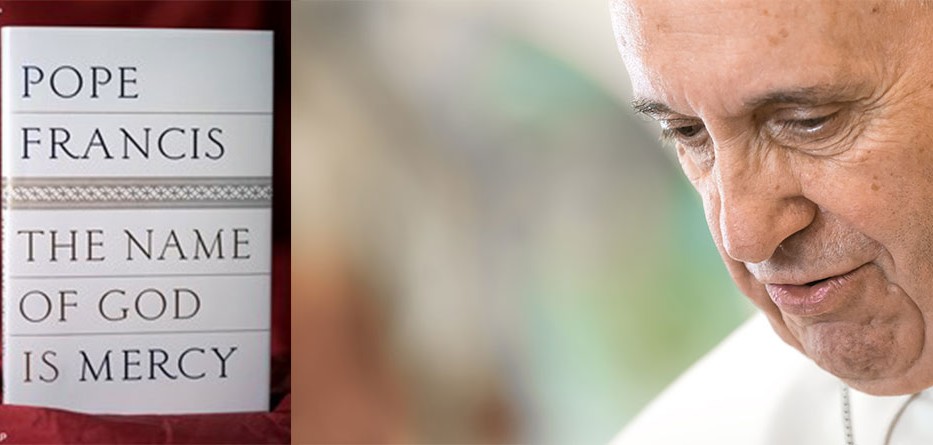- All
- Wisdom
- We Stand on Their Shoulders
- Vocation
- Uncategorized
- Stories Seldom Heard
- Spirituality
- Social Justice
- Prayer
- Peace
- Oneness
- Love
- Letting Go
- Lent
- Joy
- Inspirational Images
- Hope / Healing
- Holy Week
- Gratefulness
- God's Presence
- General News Stories
- Forgiveness
- Finding God
- Faith
- Easter
- Dominican Saints
- Discipleship
- Courage
- Christmas
- Catholic Sisters Week
- Care of the Earth
- Blessing
- Beauty
- Advent
- #justiceOPportunity
Mercy and Justice Walk Hand in Hand
Sr. Patricia Bruno, OP

299th Edition – June 2024
 Each month I receive Give Us This Day. It is a small paperback book with the Mass readings for each day. It also includes reflections and brief stories of past and present faith-filled women and men. The June 2024 calendar celebrates the lives of Albert Nolan, O.P., Anne Frank, Sr. Joan Chittister, Daniel Ellsberg, and Johannes Tauler, to name a few. These past and modern-day prophets are people of compassion and justice. They hold lanterns of hope directing our paths in the ways of peace. They also remind us that mercy and justice walk hand in hand.
Each month I receive Give Us This Day. It is a small paperback book with the Mass readings for each day. It also includes reflections and brief stories of past and present faith-filled women and men. The June 2024 calendar celebrates the lives of Albert Nolan, O.P., Anne Frank, Sr. Joan Chittister, Daniel Ellsberg, and Johannes Tauler, to name a few. These past and modern-day prophets are people of compassion and justice. They hold lanterns of hope directing our paths in the ways of peace. They also remind us that mercy and justice walk hand in hand.
Pope Francis is a strong voice for justice, mercy, and peace. He is a gift to the Church, as well as the world. I am sure many of you viewed Norah O’Donnell’s conversation with Pope Francis which was released two weeks ago. Many of his teachings echo in our hearts as we walk through our days. However, we don’t have to rely on television to learn more about him and how his spirituality was formed. Pope Francis is the subject of many books. I would suggest that we put aside our summer novels or mysteries and enjoy – yes, I mean “enjoy” one or two of the books that explore Pope Francis’ spirituality and humanity. They are great conversation builders.
“The Name of God is Mercy” is a collection of conversations that Pope Francis had with Andrea Tornielli concerning mercy. Just hearing the titles of the chapters will whet your appetite: “A Time for Mercy,” “Looking for the Smallest Opening,” “Too Much Mercy” and “Shepherds, not Scholars of the Law” are just a few of the chapter titles. “There’s information in this book I have never heard before.” That’s the statement and recommendation that came from my brother who sent me the book. I guarantee you will have the same reaction.
Pope Francis has a folk-like way of telling stories and getting his point across. He weaves scriptural insights into everyday life, the people he meets, and the conversations that have influenced his life. He tells the story of a priest who was concerned that he might be too generous with God’s mercy when people came for confession. But the priest eased his conscience by going to the chapel, praying, and saying to Jesus, “Lord, forgive me if I have forgiven too much. But you are the one who gave me the bad example” (pg. 13). Francis shares folk wisdom that he gained from the people he served. In a conversation with an Argentinian “abuela” (a grandmother) the Pope was reminded that without the mercy and forgiveness of God, the world would not exist.
This book, as well as many of his speeches and preachings, focus on God’s extraordinary mercy: a subject that people of every nation and religious persuasion hunger to hear. Perhaps this hunger comes because many of us were taught and still hold a very different image of God. The image of God, the Judge and the Bookkeeper, who weighs our good and bad deeds can hold us captive. The image of God the King whom we have to please to be loved can overwhelm our hope and trust in a God of mercy. The belief that we have to earn God’s love is certainly contrary to scripture. For some of us these beliefs have made a deep impression and make it difficult for us to imagine a God of mercy and forgiveness.
 In “The Name of God is Mercy”, Francis tells the story of students in northern Italy who were told the Parable of the Prodigal Son. When the teacher asked the students to write the story from their memory the majority of the students ended the story with the father punishing the son severely and ordering the son to live with the hired help for the rest of his life (pg. 49). It’s a frightening story, but true.
In “The Name of God is Mercy”, Francis tells the story of students in northern Italy who were told the Parable of the Prodigal Son. When the teacher asked the students to write the story from their memory the majority of the students ended the story with the father punishing the son severely and ordering the son to live with the hired help for the rest of his life (pg. 49). It’s a frightening story, but true.
I’m sure the Pope remembers this story of the students because it is so heartbreaking. Francis, however, continues to unpack the parable by quoting Bishop Luciano of Vittorio Veneto, Pope John Paul I. In a class with his parish priests, Bishop Luciano helped them, and in this book helps us, imagine what the father is feeling as he waits each day for his son’s return. Standing at the doorframe of his home the father looks towards the horizon morning and night hoping to see the silhouette of his son returning home. No matter what day or time of night the son arrives home, it will never be too late.
Love is like that. It never gives up. It is always ready to forgive. This ever-faithful father is an image of the God of mercy, a God who is ready at a moment’s notice to drop everything, run to meet us, embrace and kiss us tenderly, and welcome us home. But the Bishop goes on to say something very unexpected. “Our sin is like a jewel that we present to God to obtain the consolation of forgiveness…Giving a gift of jewels is a noble thing to do, and it is not a defeat but a joyous victory to let God win” (pg.52). Bishop Albino Luciano’s words are close to those of many mystics who live close to the heart and mind of God. St. Ambrose speaks similarly of God’s mercy. “The offense did us more good than harm because it allowed Divine Mercy to redeem us” (pg. 87). We understand as we listen to these statements that those speaking are not encouraging us to become raving sinners. Rather they speak to the unlimited mercy of God and God’s unconditional love.
Throughout the book, the Pope alludes to a variety of scripture passages. He begins the book with the parable of the tax collector and the Pharisee praying in the temple (Luke 18: 9-14). The parable not only reminds us that all of us are sinners and in need of healing and forgiveness but also exposes how a lack of humility can strip us of our sense of awe. The Pope expands his thoughts on this subject when he revisits the parable later in the book. When we begin to think that we are not sinners we become blinded by our arrogance and soon lose our appreciation of what God has done for us. If this arrogance becomes a habit, a way of life, we begin to see ourselves better than others. He gives the example of a man who thinks of himself as a very good Catholic, but considers his maidservant “to be for his pleasure and use.” Arrogance and hypocrisy are two traits that hold God’s mercy at bay. They are not only personally destructive, but they can lead to systemic corruption. How does all of this happen? Pope Francis gives some very practical warnings.
Toward the end of this small book Pope Francis reminds us that the first “school of mercy” is our family. It is through our family dynamics that we learn to acknowledge our limitations and forgive others. It is in our homes that we learn to forgive ourselves and accept forgiveness from others. He also names and encourages us to practice the Corporal and Spiritual Works of Mercy. The Name of God is Mercy is not a complicated book. As usual, the Pope has a focus and continues to unravel the knots of misunderstanding carefully so that we will be able to better understand in mind and heart who this God is whom we worship and love. The last sentence of the last chapters holds the key to understanding the Pope’s theology and the teachings of Jesus.
“In the evening of life, we will be judged on love alone” (St John of the Cross).
Even though this book is easy to read the underpinnings of my comments concerning The Name of God is Mercy need to be fleshed out. So, my advice to you is the advice that a friend has given me. My friend uses an old exercise tape of Jane Fonda who says, “Don’t just sit on the couch and watch this exercise video. Get up and do it.” That is my advice to you. Don’t just read this review! Read the book. Pray, ponder it. Don’t let this summer of grace become an overlooked opportunity.
Footnotes:
All of the quotes come from The Name of God is Mercy: A conversation with Andrea Tornielli, translated from the Italian by Oonnagh Stransky, Random House, New York, 2016.
